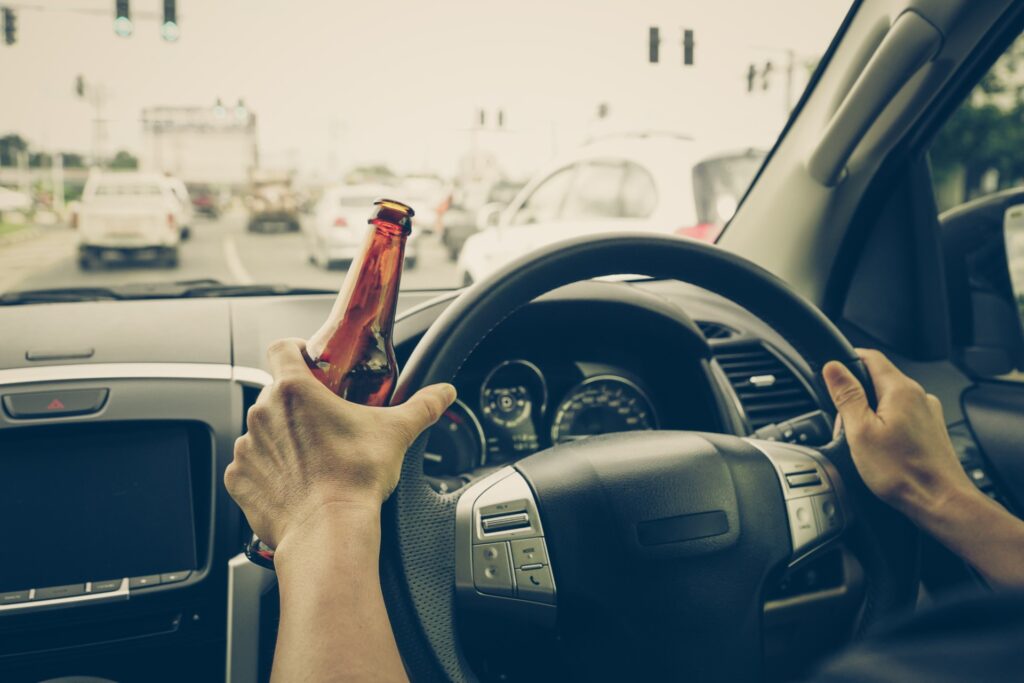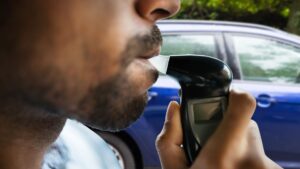 How to Beat a DWI Charge in New York
How to Beat a DWI Charge in New York
Driving home after a family gathering with your daughter asleep in the back can feel like a peaceful, everyday occurrence. However, for New York parents, a routine police stop, even for something minor like a broken taillight, can quickly become a life-altering experience. Under New York’s Leandra’s Law, if your little one is present, a standard DWI charge transforms into an aggravated DWI. In fact, Leandra’s Law is one of the harshest in the country for protecting children from impaired driving.
If you face charges of DWI with a child in the car in New York, this article will walk you through the law, the penalties, what to expect legally, and how an experienced defense attorney can help protect your future.
What Is Leandra’s Law?
Officially, the Child Passenger Protection Act of 2009, Leandra’s Law, makes it a felony to drive while intoxicated or impaired by drugs with a child who is 15 or younger as a passenger. The law is named after Leandra Rosado, an 11-year-old girl who tragically lost her life in a DWI crash in Manhattan. The key elements of a DWI with a child in the car charge are:
- Age threshold. The child must be 15 years old or younger at the time of the offense.
- Passenger requirement. The child must be physically present in the vehicle during the DWI incident.
- Intoxication standard. The driver must meet the legal definition of intoxicated or impaired by drugs.
- Automatic felony. You do not have to have a history of previous DWI convictions for the State to charge you with a felony under Leandra’s Law. The presence of a child alone elevates a DWI to a felony.
This applies regardless of whether the child is injured or the relationship between the driver and the child. The law intends to send a clear message that putting a child at risk in a motor vehicle because of intoxication is a grave offense with severe consequences.
What Happens After You’re Arrested for DWI with a Child Passenger?
The State does not handle a charge under Leandra’s Law like an ordinary traffic case. The process is immediate and severe, and proceeds as follows.
- Arrest and arraignment. You’ll likely be arrested on the spot, your license suspended immediately, and your vehicle impounded. At your arraignment, the judge will inform you of the official charges, give you a chance to enter a plea, and consider and rule on pretrial release.
- CPS notification. When a child is present during a DWI arrest, Child Protective Services is notified via an incident report filed to the Statewide Central Register of Child Abuse and Maltreatment. This notification could lead to a family court case and, in some cases, the temporary removal of your child from your care.
- Discovery and negotiations. Both sides participate in discovery, and your lawyer will examine all of the evidence against you. They will attempt to negotiate an advantageous plea deal so you can avoid trial if that is your wish.
- Pretrial hearings and motions. If law enforcement violated your rights, your lawyer can file a Motion to Suppress any resultant evidence—thereby weakening the State’s case against you. You will also have a pretrial hearing where the sides will inform the judge of the status of the case and set the trial date.
- Trial. Your lawyer knows how to pick a jury, question witnesses, and argue for your acquittal.
It’s important to remember that prosecutors aggressively pursue these cases. Having skilled representation early can make the difference between prison and a more manageable outcome.
Leandra’s Law Penalties
First-time offenders are looking at a Class E felony, which carries a potential four-year state prison sentence. Beyond that, Leandra’s law penalties include mandatory fines ranging from $1,000 to $5,000. Once you add in court costs and fees, that financial hit can easily double. The penalties escalate dramatically when injury or death occurs.
- Physical injury cases. When a child suffers physical injury due to the driver’s impairment, charges can increase to Class D felony assault. This level of felony carries a penalty of up to seven years in prison.
- Serious physical injury. Cases involving serious physical injury to a child can result in Class C felony charges. These charges carry significant penalties, including up to 15 years in prison.
- Death cases. If a child dies as a result of the impaired driving incident, drivers face Class B felony vehicular manslaughter charges. These charges are clearly serious and carry severe penalties, including up to 25 years in prison.
In addition to prison time, violating Leandra’s Law results in mandatory installation of an ignition interlock device and a minimum one-year license revocation. Unlike a standard DWI, a conviction under Leandra’s Law makes you ineligible for a conditional or hardship license.
Such serious felony convictions stay with you forever. You cannot get such convictions sealed or expunged from your record.
DWI with a Minor Passenger: What Defenses Are Available?
Despite the seriousness of these charges, defense strategies can help minimize or eliminate criminal liability. Successful defense requires thorough investigation of the arrest circumstances, evidence collection procedures, and prosecution theories. A skilled attorney can use the following strategies.
- Disproving intoxication. The prosecution must prove you were intoxicated or impaired by drugs. Your attorney can challenge the officer’s field sobriety test results and other subjective observations.
- Challenging chemical test accuracy. Equipment used for breath testing must undergo regular calibration and maintenance, and there are strict procedural requirements for administering the tests. If administering officers violate these protocols, the judge may deem the test results unreliable and inadmissible in court.
- Challenging the traffic stop. An attorney can investigate whether the police had a legal basis for the initial traffic stop. If the stop was unlawful, any evidence collected could be suppressed, which could lead to a dismissal of the entire case.
- Age verification challenges. The child in the vehicle must be 15 or younger for the felony enhancement to apply. Your attorney can verify the child’s age to ensure the charge is legally valid.
Experienced defense counsel can identify and use each case’s unique factual and legal aspects to safeguard your rights.
How We Can Help
Greenspan & Greenspan Injury Lawyers believe that one mistake should not define your life, including charges of DWI with a minor passenger. Since 1959, our firm has stood up for people across New York who must fight for their lives after an arrest. Our team provides:
- Aggressive defense strategies tailored to your case,
- Guidance through CPS investigations,
- Advice on protecting your professional license and career, and
- Compassionate advocacy that treats you as more than just a case file.
You deserve someone in your corner who can balance fierce courtroom defense with the personal support you need during one of the hardest chapters of your life. Call today. We are ready to help.
Resources
- Leandra’s Law and Ignition Interlock Devices. New York State Department of Motor Vehicles (DMV), link.
- Vehicle and Traffic Law §1192. New York State Senate, link.
- Frequently Asked Questions About DWI and Leandra’s Law. New York State Division of Criminal Justice Services (DCJS), link.
- Child Protective Services. New York State Office of Children and Family Services, link.
- You and the Drinking Driving Laws (Form C-39). New York State Department of Motor Vehicles (DMV), link.
- Vehicle and Traffic Law § 1193: Penalties. New York State Senate, link.







